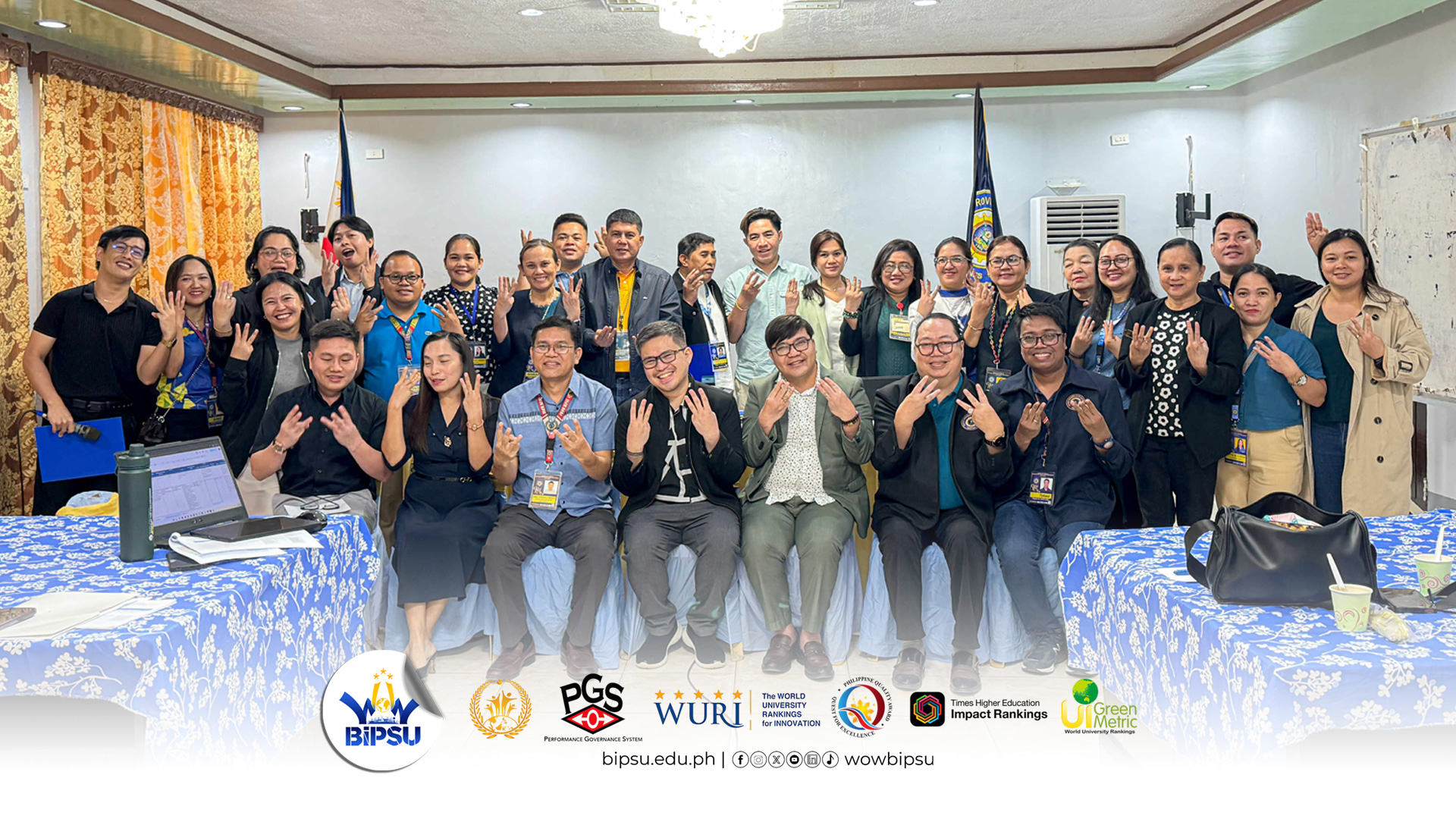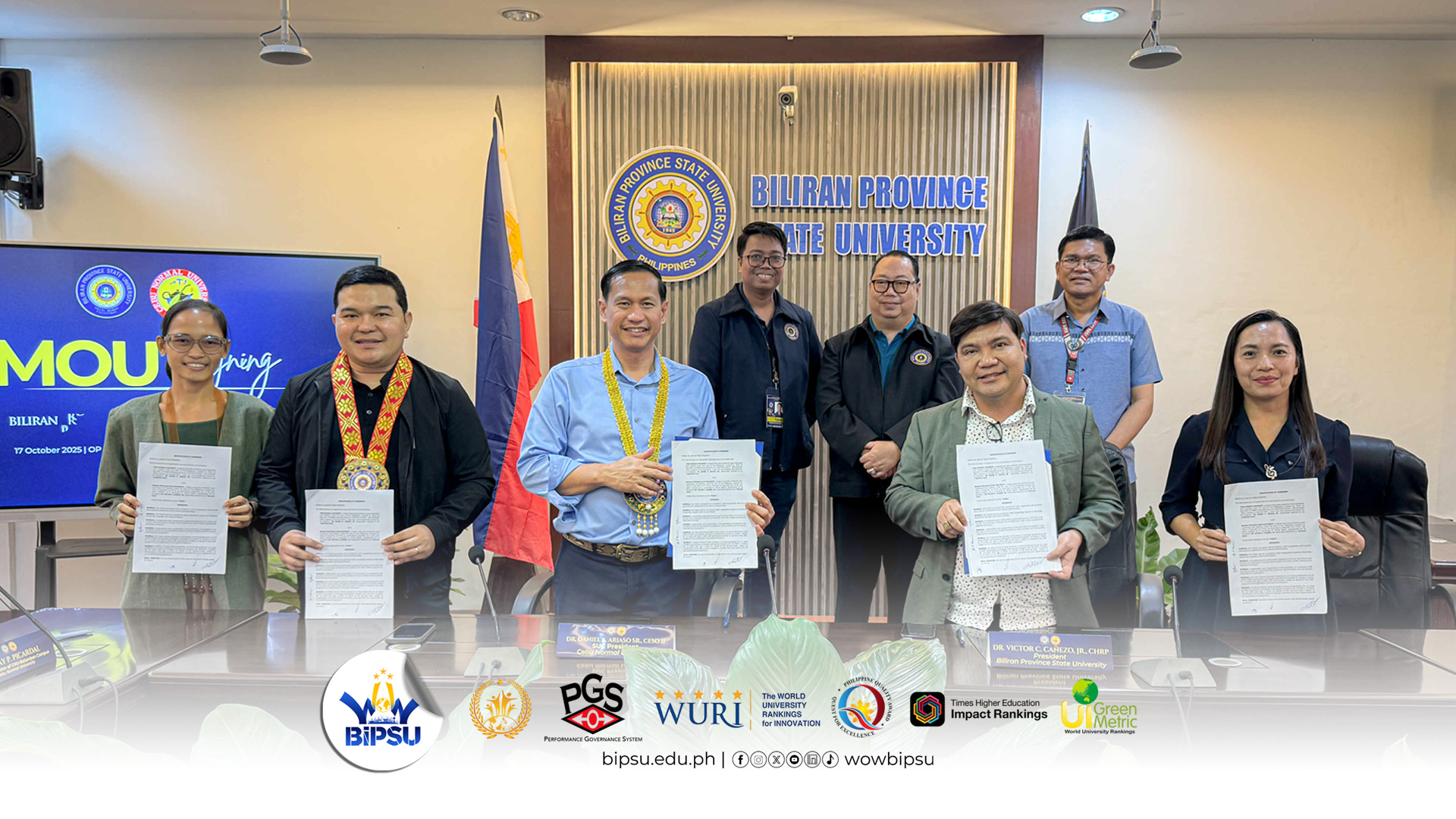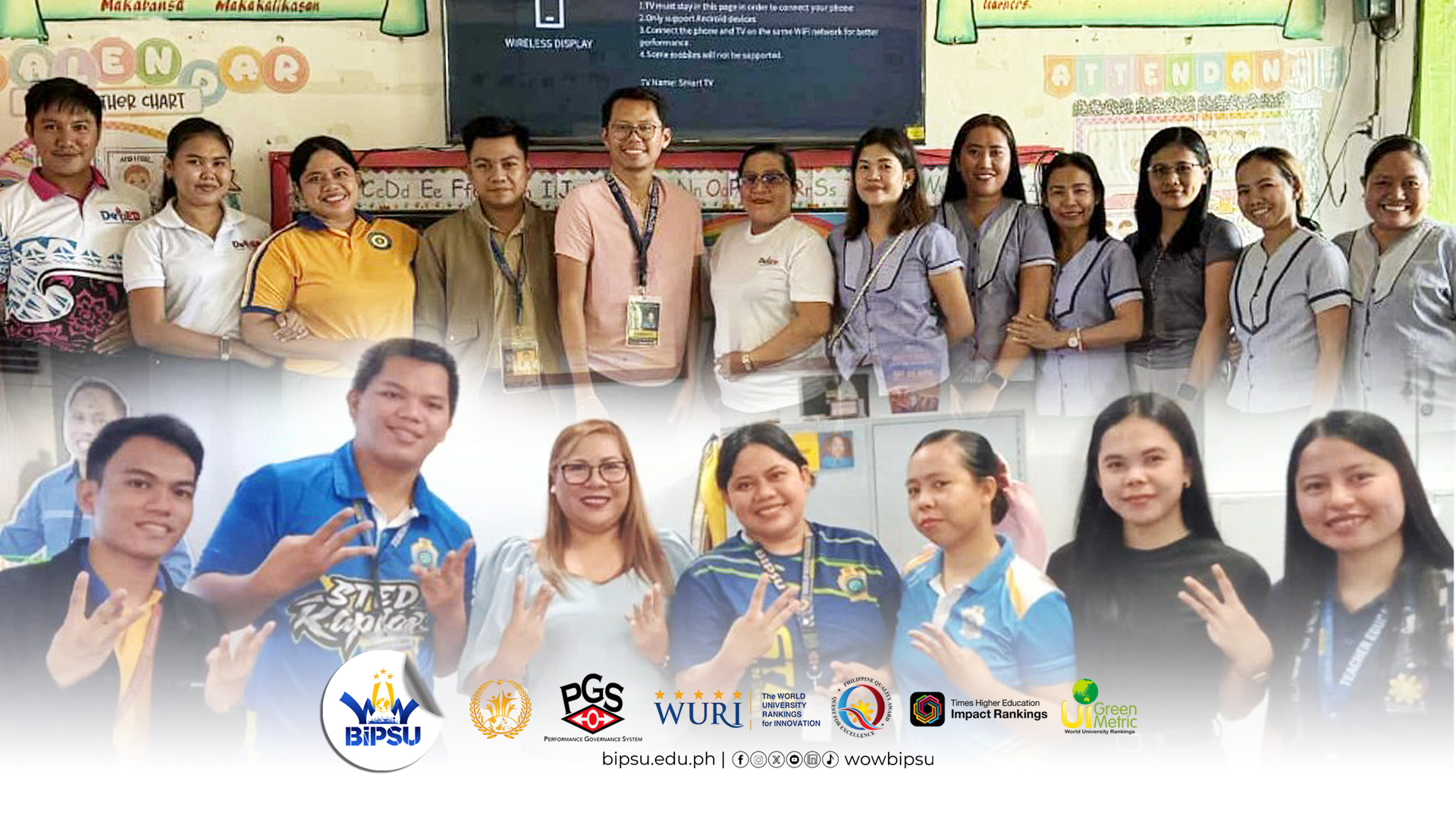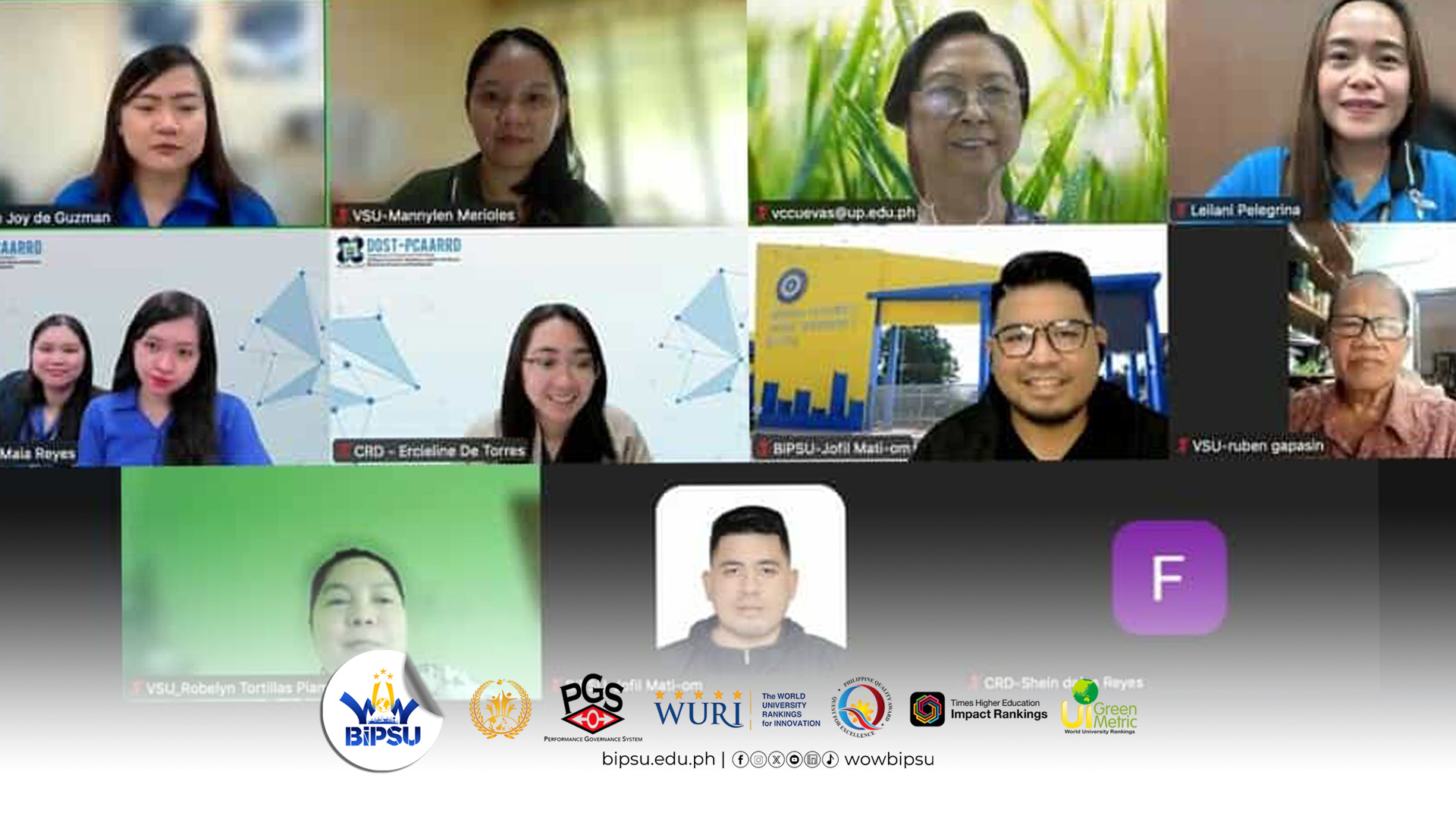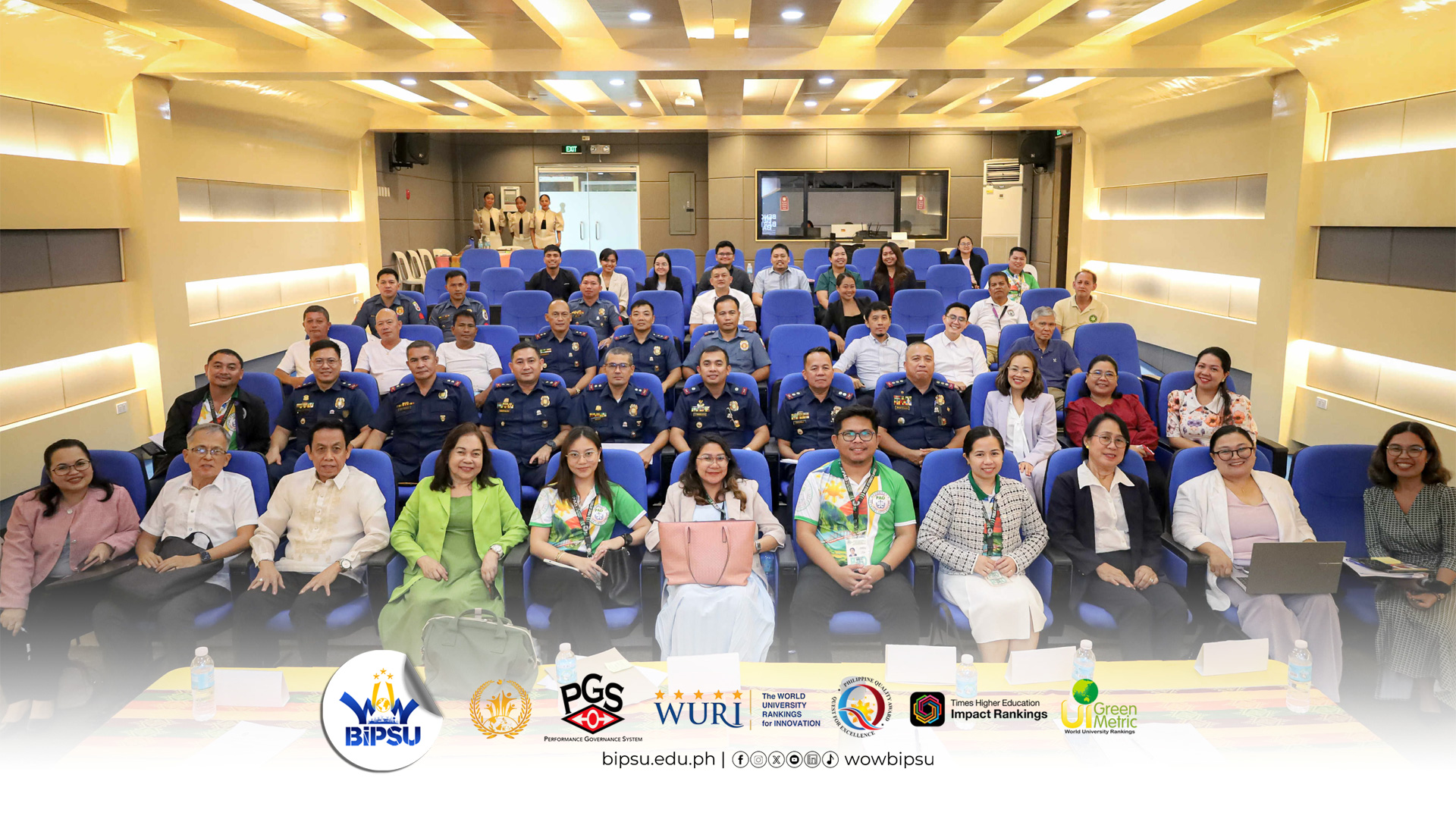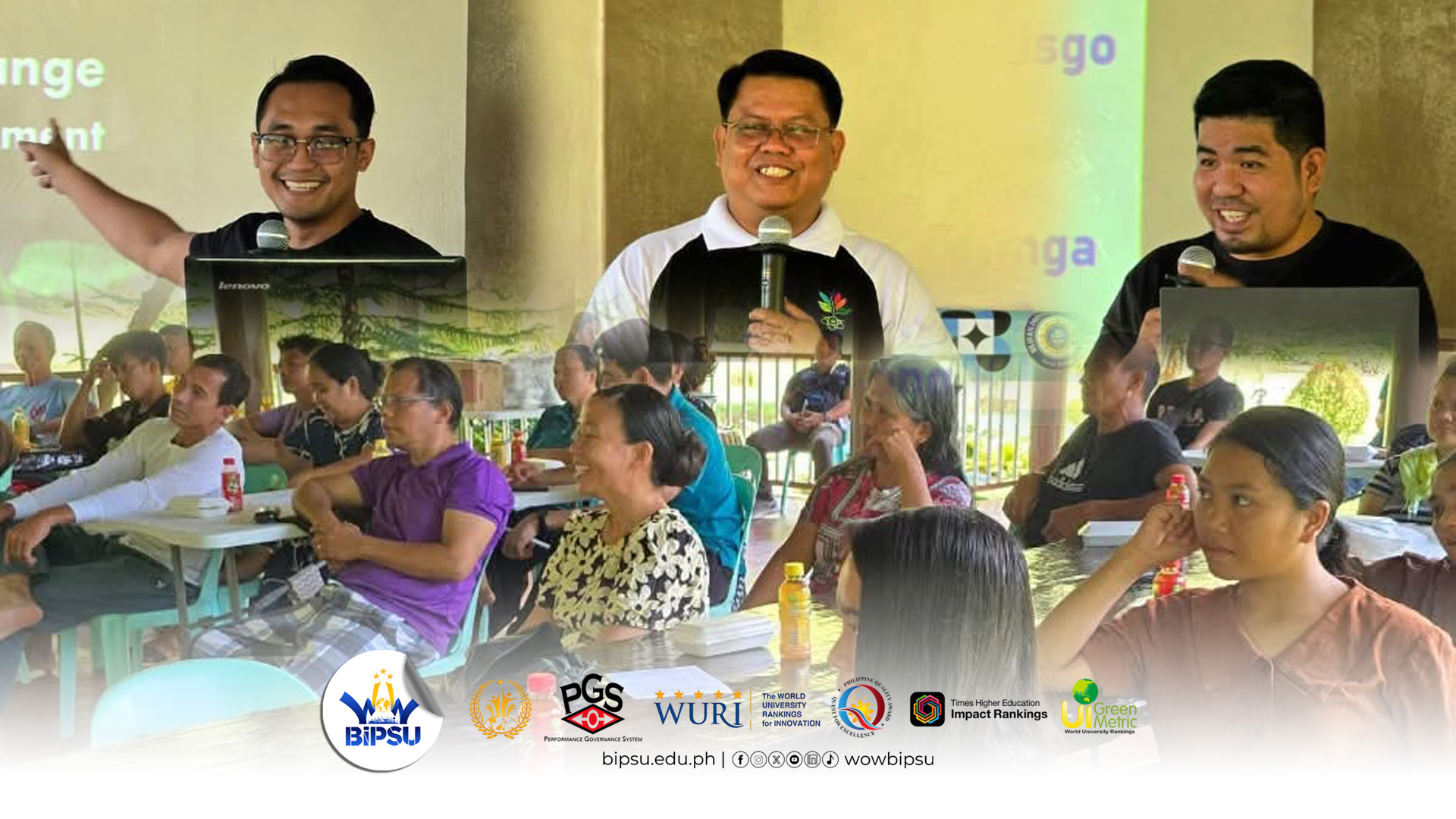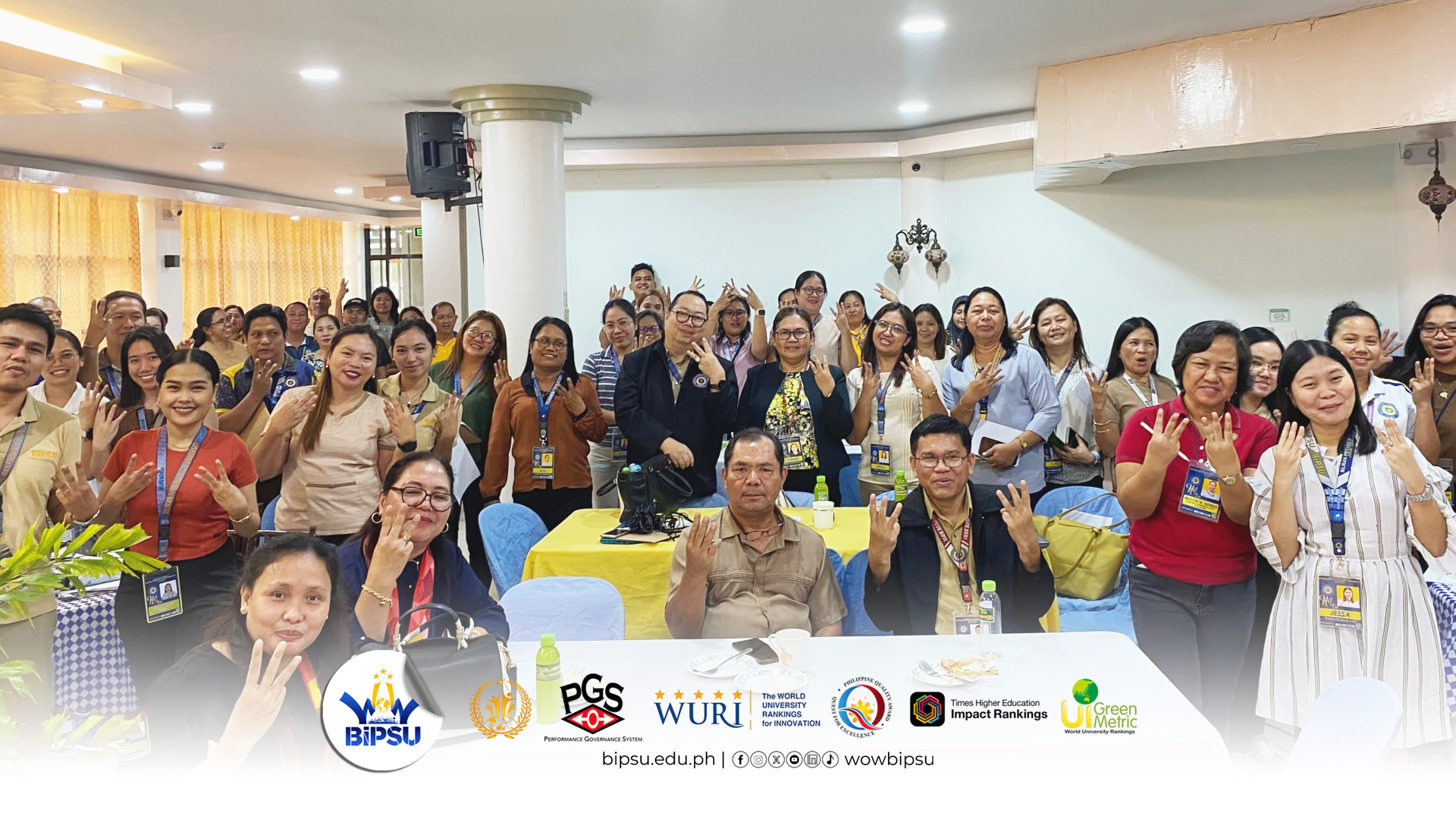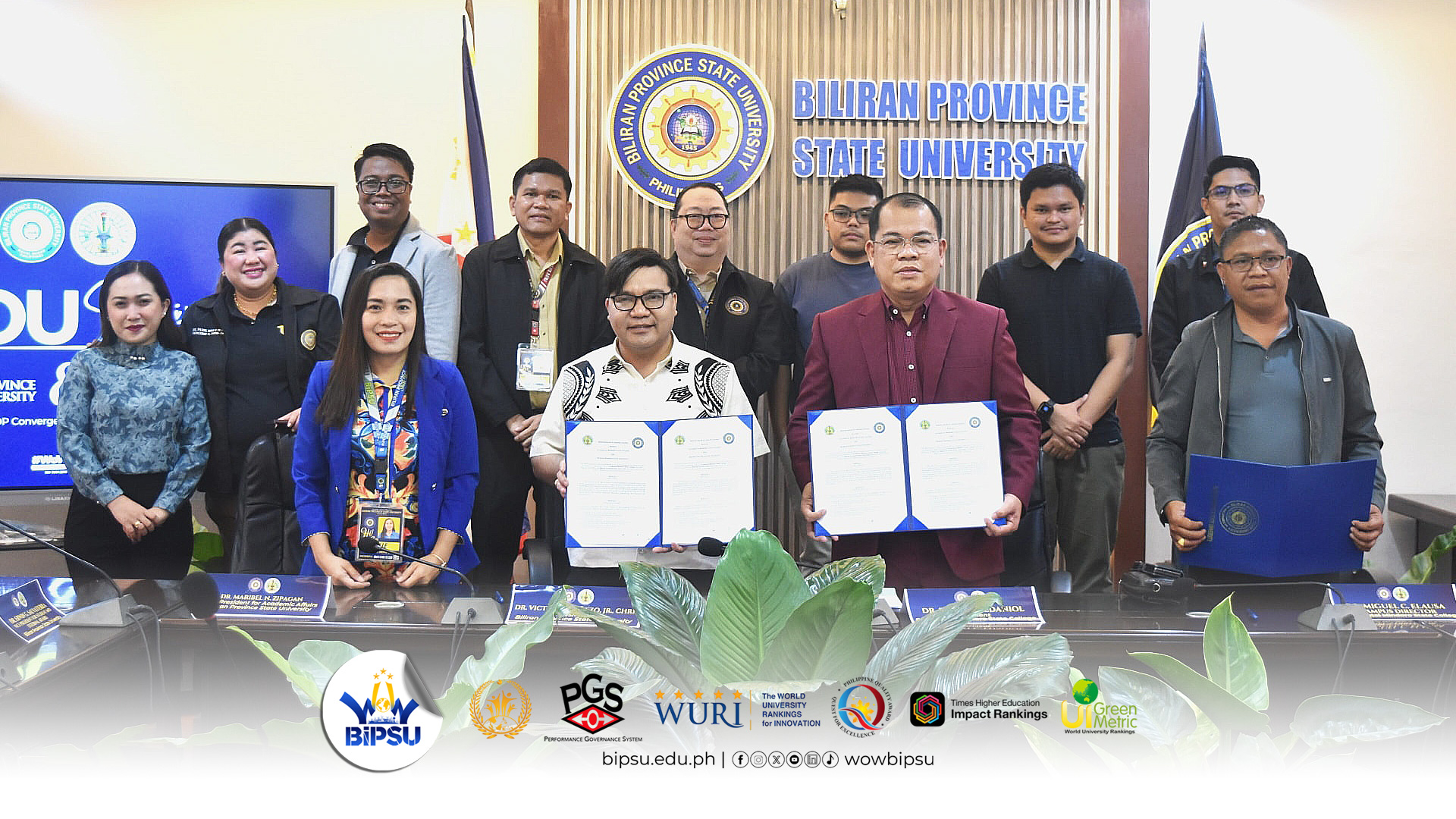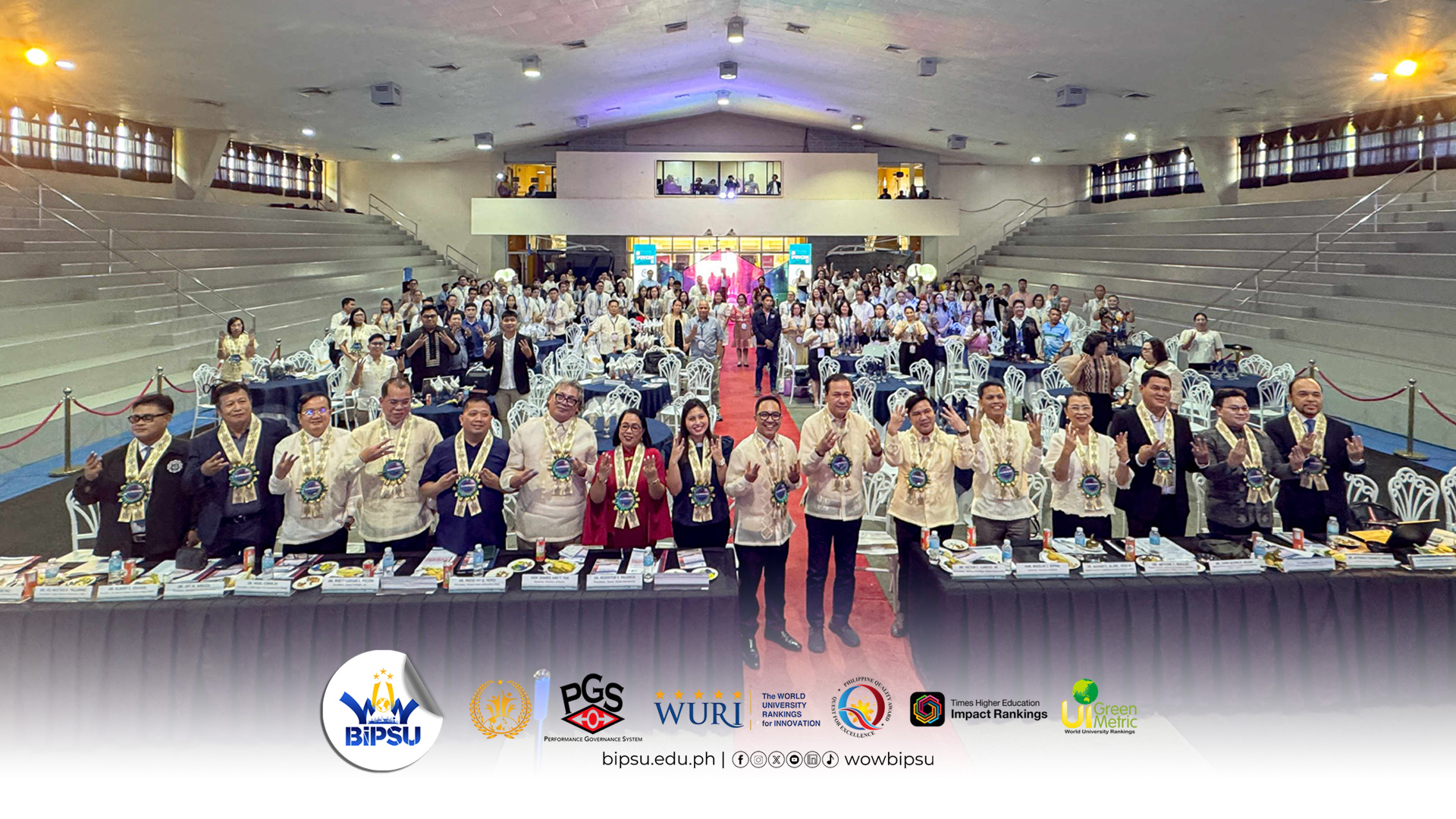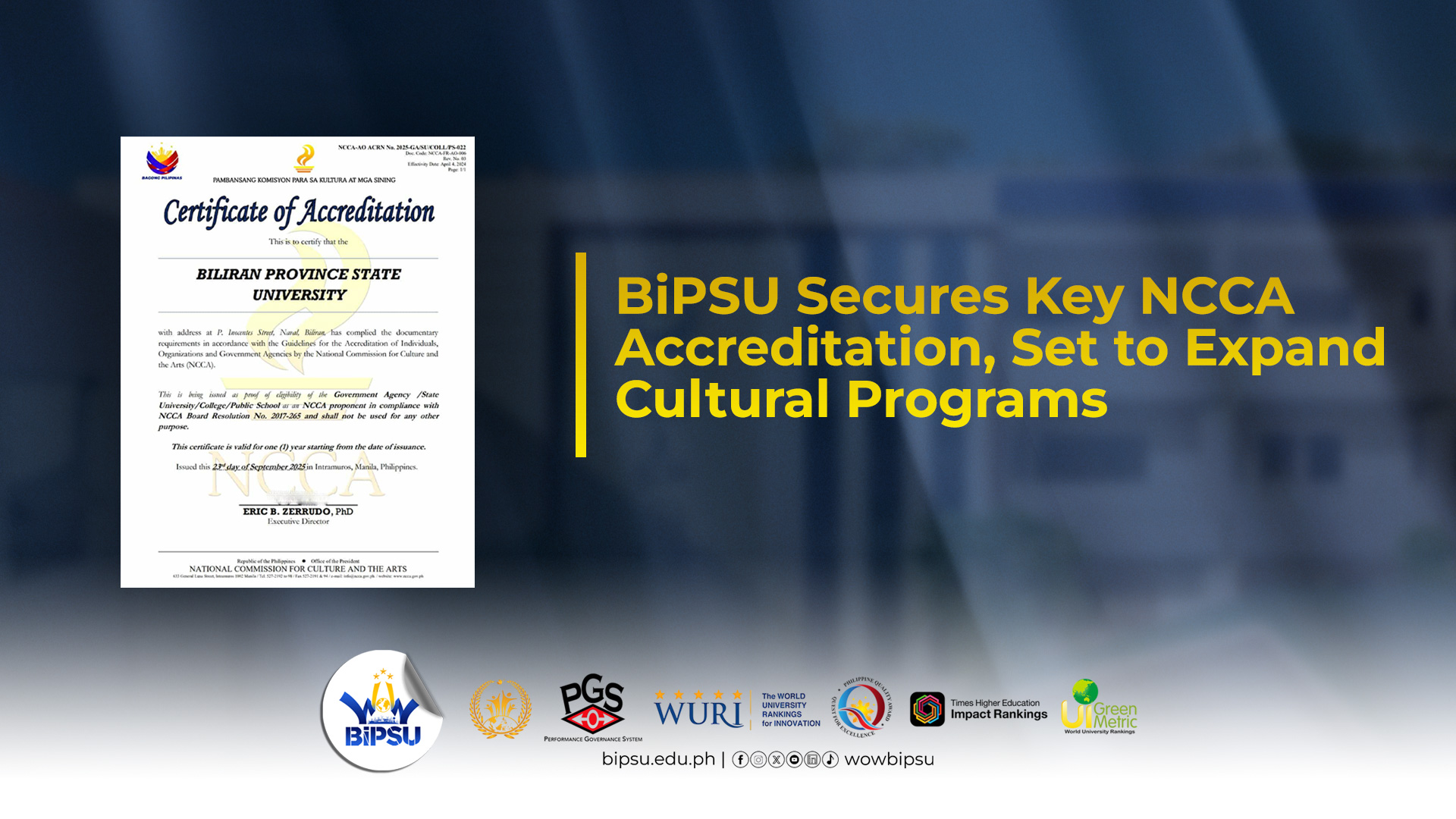- Written by Lorenzo R. de la Cruz; Photo by Mark Ronnie Mangco
- Read Time: 1 min
Biliran Province State University (BiPSU) celebrated a significant milestone in its commitment to gender-responsive governance as University President Prof. Victor C. Cañezo, Jr., EdD, CHRP, announced that the institution was recognized among the top 10 State Universities and Colleges (SUCs) nationwide for its budget utilization in Gender and Development (GAD).
In his welcome remarks for the four-day HIBLA: Weaving the WoWBiPSU GAD Agenda workshop, President Cañezo shared his pride that BiPSU ranked 10th among SUCs for the Highest Organization-Focused GAD Budget Expenditure in Fiscal Year 2024. He attributed this achievement to the concerted effort and "teamwork," guided by the Gender and Development Office under Director Dr. Mariane Dagayloan.
The workshop, running from October 15 to 18, 2025, at the University Hostel, Function Hall A, aims to formulate the university's strategic GAD Agenda. This agenda, which will serve as the "bible for planning, budgeting, and implementing programs that promote gender equality and women’s empowerment", is mandated by the Magna Carta of Women and Executive Order No. 273.
President Cañezo introduced the core theme of the workshop, HIBLA, which stands for Harnessing Inclusion, Building Leadership, and Advancing gender equality in Biliran Province State University.
The strategy to institutionalize gender-responsiveness at the university is built on a three-pronged framework: first, to Harness Inclusion by fostering safe and welcoming environments, incorporating gender sensitivity into policies and programs, and promoting open dialogue ; second, to Build Leadership by empowering the university community—including students, faculty, and staff—as "gender champions," offering capacity-building, and acknowledging inclusive role models, exemplified by events like the BiPSU WOW Awards ; and third, to Advance Gender Equality by ensuring alignment with national and international Gender and Development (GAD) frameworks and the Sustainable Development Goals (SDGs), while also strengthening collaboration with external entities such as government agencies, Local Government Units (LGUs), and community partners.
The President emphasized that the true essence of GAD is "about making everyone feel accepted and valued" and ensuring "no one is left behind". He stressed that crafting the agenda ensures BiPSU's GAD efforts are "systematic, evidence-based, and results-oriented" and "responsive to the real needs of our academic and local communities".
The workshop features Mr. Alvin Cloyd Dakis, President and Chief Consultant of STRIDE Solutions and a member of the Philippine Commission on Women National GAD Pool of Experts, as the resource speaker. Participants include Vice Presidents, the GAD Office Director, and GAD Secretariats from both the Naval and Biliran Campuses.
In closing, President Cañezo encouraged participants to contribute their ideas, which will collectively "bring us closer to building a more compassionate and gender-inclusive BiPSU," continuing to weave a culture of empowerment "where every BiPSUnista is seen, heard, and valued". The workshop is expected to conclude on October 18, 2025.
#WoWBiPSU
